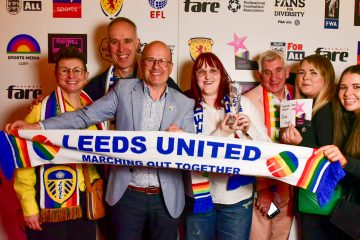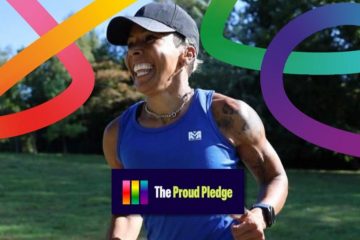‘Out Olympians have inspired so many other LGBTQ+ people – let’s investigate the impact’
At London 2012, there were 23 out LGBTQ+ athletes competing – at Tokyo 2020, there were at least 186; Dr David Eldridge is part of a team of academics studying the impact of this surge in visibility; he writes about his own sporting journey and lays out an exciting opportunity for researchers interested in this topic…
By Dr David Eldridge, Senior Lecturer at the University of Hull
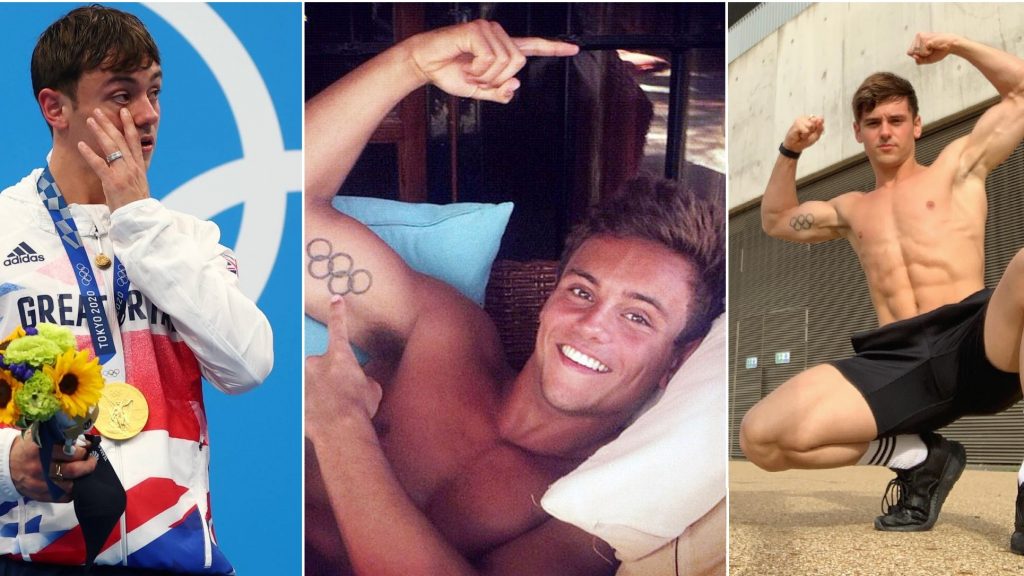
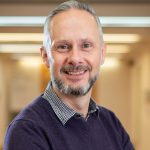
I felt for Tom Daley when he came out 10 years ago.
The British diver was 19 when he published his famous YouTube video titled ‘Something I want to say…’ back in December 2013.
“My life changed massively when I met someone, and they make me feel so happy, so safe and everything just feels great,” said Tom. “That someone is a guy.”
The video has been watched over 13 million times and in the last decade, Tom has added three more Olympic medals to the bronze he won at London 2012, including a gold from Tokyo 2020.
At the time Tom shared his news, I didn’t feel surprise any more than my own mother did when I came out, but I did feel happy that he had found love and I was relieved that he had come out on his own terms, rather than being outed by the British tabloids.
I also felt anxious for him over all the attention that would now focus on his personal life. and the additional pressure he would face as an openly gay ‘role model’.
But I definitely didn’t feel like taking up diving. I reacted much more viscerally to Gus Kenworthy when he kissed his boyfriend on live television at the Winter Olympics in Pyeongchang in 2018.
Because I had been skiing (a grand total of two times!), I could still recall the overwhelming exhilaration felt when I scooted down a mountainside for the first time without falling down – and I certainly would have kissed my boyfriend in that moment, if I’d had one around!
Kenworthy’s spontaneous display of love and joy jolted me off my sofa and had me laughing and punching the sky. But my ski jacket remained in the wardrobe.
What did get me taking up sport was a personal connection much closer to home. A good friend who for years had struggled with mental health issues was suddenly happier and more centred than I’d ever known him to be.
At Leeds Pride, he introduced me to the source of that happiness – his teammates from the city’s gay and inclusive rugby club, the Leeds Hunters.
Seeing the transformative effect it had had upon him – as he found he was good at a sport that he’d always thought was for the ‘straight lads’ and had veered away from, of being valued as a player, of being part of a team and feeling that elusive sense of belonging – that didn’t just make me want to take up the sport, it made me want to set up a whole rugby club in my home city of Hull!
And through the five years that the Hull Roundheads has now existed, it has encouraged dozens of LGBTQ+ individuals and our allies to return to sports or take it up for the very first time, experiencing everything that my friend had done and much more besides.
Personally, as I’ve become immersed in this beautiful world of queer people finding a love for sports that they often never expected to experience when growing up, it has unexpectedly transformed my own path as an academic.
The University of Hull, where I’ve been teaching and researching for 23 years, has just established a research centre for the study of Sustainability and Olympic Legacy (HCSOL), officially recognised by the International Olympic Committee (IOC) and building on the university’s existing collaboration with Team GB.
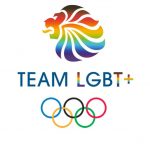
Because of research work I’ve recently been doing in partnership with the Roundheads, investigating how inclusive clubs can better overcome the barriers to participation in sports that LGBTQ+ individuals have experienced, I leapt at the opportunity HCSOL offered to compare and contrast the experiences of local LGBTQ+ grassroots sports players and international elite athletes.
Despite my own sporting experiences being fundamentally informed by personal friendships, results from a European-wide study by Outsport published in 2019 show that 70% of LGBTQ+ respondents regarded “famous sports stars coming out” as being the most important factor of all in tackling homo-/transphobic discrimination in sports (for more info, see p7 in PDF document here).
And, as Outsports documented, many of the 186 openly LGBTQ+ athletes who competed in the Tokyo 2020 Olympic Games expressed hope that their public examples would “show the LGBTQ+ community that we do belong” and inspire other LGBTQ+ people “to pursue their athletic dreams”.
The true extent of that inspiration is one of the key areas we’re looking to explore as a vital and new aspect of the Olympic legacy, particularly when the IOC’s Scientific Panel has repeatedly highlighted the “mental and physical harm” that LGBTQ+ people experience in sports.
In support of this research, the University of Hull is offering a fully-funded PhD scholarship to investigate the impact of publicly out Olympic athletes on the attitudes towards sports among LGBTQ+ youth.
Applications for that scholarship (available over three years full-time or five years part-time) are open until January 30, 2023.
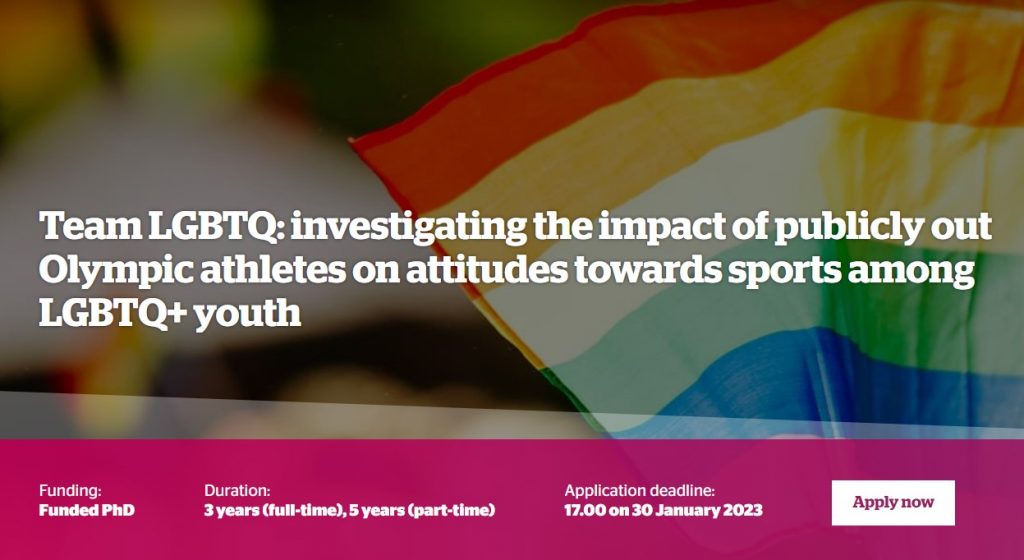
We’re looking for applicants with a good Masters degree in any relevant field such as the Humanities, History, Cultural Studies, Gender or Sexuality Studies, Sociology, Media and Journalism, Sport Science or Sports Psychology, with a track record of working in areas relating to LGBTQ+ inclusion.
As assessing the impact of athletes like Daley, Kenworthy, Laurel Hubbard and Markus Thormeyer will involve talking to different communities of LGBTQ+ youth – and potentially the athletes themselves – about their personal experiences, we’re seeking candidates with well-honed interviewing skills and the ability to qualitatively analyse and interpret the evidence produced from such interviews.
More information about the scholarship, which would begin in May 2023, can be found on The University of Hull website.
And as lead supervisor on the project, I will be taking part in a webinar Q&A on Thursday 12 January at 6pm GMT. If you’re interested, register to join now!
Our thanks to Dr David Eldridge. We highly recommend checking out this research project!
Read our LGBTQ+ in Sports Review of 2022 here.
Sports Media LGBT+ is a network, advocacy, and consultancy group that is helping to build a community of LGBTQ+ people and allies in sport. We’re also a digital publisher. Learn more about us here.
We’re interested in your news and stories. Share with us and tap into a worldwide audience through our Google News affiliate website – which had over 50,000 visitors in 2022 – and our popular social channels with over 15,000 followers. Contact us to discuss how we can help you.
